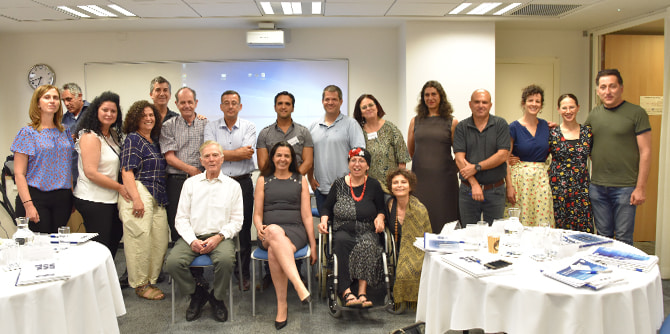How many times have we said to ourselves “If only we could start again,” or “If we were to have another chance, we would do things differently”? The Mandel Graduate Unit's Budget Zero Conference, which will be held in May 2020, will be based on a concept and model developed by
Dr. Granit Almog-Bareket, director of the Unit, and will invite the community of Mandel graduates to imagine such alternatives.
The Mandel Graduate Unit, which creates opportunities for study and professional development for Mandel graduates, operates on three levels: individual professional development, group learning processes, and community activities. At the core of its community activities is a professional conference that takes place periodically and is dedicated to a central common theme.
Dedicated to envisioning the future, the Budget Zero conference will focus on Israel’s image in the year 2055. During the conference, the Mandel graduates will take up the challenge of planning a desirable future, free of limitations and restrictions imposed by decisions of the past or constraints of the present. They will be invited to think again about the nature of desirable education and the image of the society in which they would like to live. Together, they will create a picture of a worthy future.
Dr. Granit Almog-Bareket has borrowed the method of thinking that underlies this conference from the principle of zero-based budgeting in the world of economics. In zero-based budgeting, there is no more inert behavior that assumes that the current situation must continue, and that existing programs are preferable to new ones; rather, all choices and decisions must be justified at the most fundamental level. This situation requires values clarification and either the setting of new priorities or a reaffirmation of existing priorities. This new conceptual framework requires that goals and objectives be re-examined and confirmed, and that up-to-date alternatives be found to achieve them. At the same time, the model enables us to let go of mistaken perceptions and stagnated thinking.
During the conference, the participants will be introduced to innovative models of future thinking and strategic planning, will build the type of society and education system that they believe are ideal, and will address practical questions about the processes necessary to transform their dreams into reality. This will be done as the graduates learn about leadership approaches and management methods that are used in other fields, and as they focus on four main disciplines: medicine, demographics, technology, and local government.
On June 4–5, 2019, a seminar was held as the first milestone of learning in advance of the conference. Entitled “A Future Model of Health Care,” the seminar focused on the developments and changes that are taking place in the field of medicine and examined these trends in order to learn from them and improve the fields of education and society in Israel.
Dr. Granit Almog-Bareket, who developed the rationale for the conference, invited
Professor Ralph Snyderman, M.D., director of the Duke Center for Research on Personalized Health Care, to be a partner in the first learning process, which deals with the field of medicine. The center that Professor Snyderman directs focuses upon developing new concepts and approaches to medical care. A leading professional who has received many awards for his contribution to improving the quality of medical treatment, Professor Snyderman was among the first thinkers to envision and express the need to change the character of contemporary medical treatment, such that it will shift from the treatment of diseases to proactive treatment that focuses on each individual patient.

